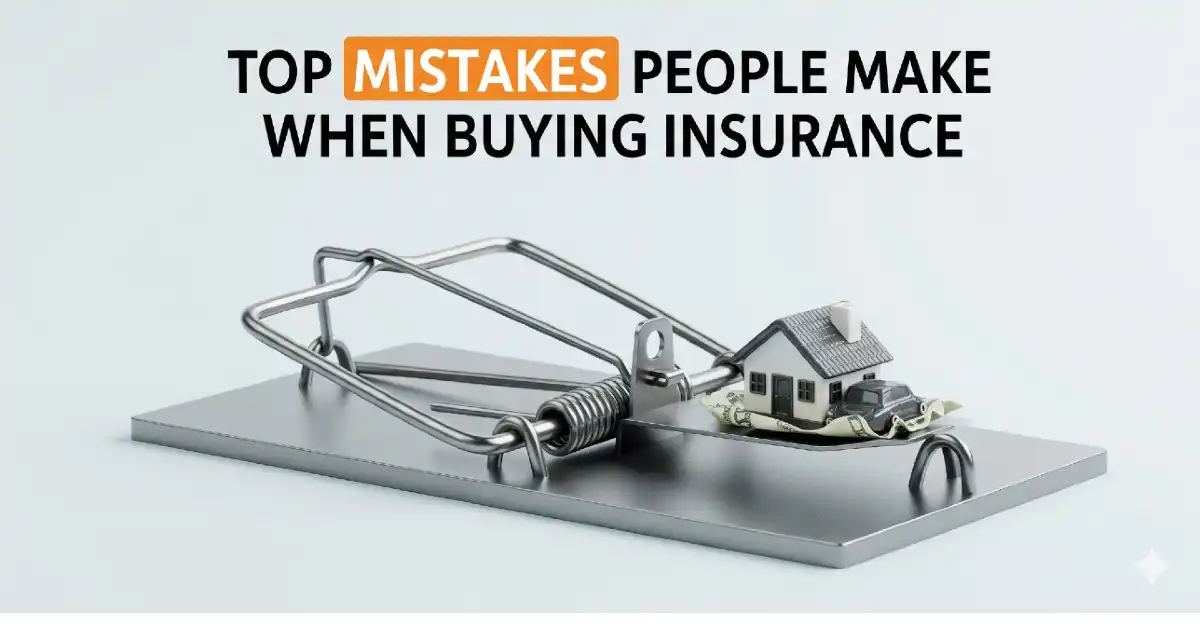Top Mistakes People Make When Buying Insurance
Insurance is meant to provide financial protection and peace of mind, but many people end up with the wrong coverage because of simple mistakes. Choosing the right insurance policy requires careful evaluation, yet buyers often overlook important details that can cost them later. By understanding the common errors people make when purchasing insurance, you can avoid financial stress and ensure that your policy truly serves your needs.
1. Not Comparing Multiple Insurance Options
One of the most common mistakes is buying the first insurance policy offered. Every company has different coverage limits, terms, and premiums. Failing to compare multiple insurers can result in higher costs and less protection. Always request quotes from at least three companies before making a decision.
2. Choosing the Cheapest Policy Without Checking Coverage
While affordability matters, the cheapest insurance is not always the best. Many low-cost policies have limited coverage, high deductibles, or hidden exclusions. Instead of focusing only on price, evaluate what the policy actually covers and whether it protects you in real-life scenarios.
3. Ignoring Policy Exclusions
Exclusions are specific situations or damages that the insurance policy will not cover. Many buyers fail to read the fine print and are surprised when their claims are denied. Always review the exclusions section carefully so you know exactly what is and isn’t protected.
4. Underinsuring to Save Money
Some people choose lower coverage limits to reduce premiums, but this can be risky. If an accident or loss exceeds your coverage, you will have to pay the remaining costs out of pocket. It’s better to choose a policy that matches your actual risk rather than saving a little on premiums and facing large expenses later.
5. Forgetting to Review Policies Regularly
Life situations change—marriage, buying a home, or starting a business can all affect your insurance needs. Many people forget to update their policies, which leaves them underinsured or overpaying. Reviewing your insurance once a year ensures that your coverage aligns with your current lifestyle.
6. Not Asking Questions About Terms
Insurance documents are often filled with technical terms and jargon. Buyers sometimes accept policies without fully understanding the conditions. If you are unsure about any terms, ask your insurer for clarification. A lack of understanding can lead to unexpected financial losses when making a claim.
7. Relying Only on Employer-Provided Insurance
Employer-provided insurance is a good benefit, but it may not be enough. The coverage is often basic and may end if you switch jobs. Relying only on workplace insurance can leave you exposed. Supplementing it with personal policies ensures better long-term security.
8. Delaying the Purchase of Insurance
Many people postpone buying insurance until it feels urgent. However, waiting too long can lead to higher premiums, limited options, or even rejection due to health conditions. Purchasing insurance early guarantees better coverage at lower costs.
9. Not Checking the Insurer’s Reputation
People often focus on the policy details but ignore the reliability of the insurance provider. Choosing a company with poor claim settlement history can make it difficult to receive compensation when you need it most. Always check customer reviews, ratings, and claim settlement ratios before selecting an insurer.
10. Overlooking Additional Riders and Benefits
Insurance policies often come with optional riders such as critical illness cover, accidental disability, or income protection. Many buyers skip these without realizing their importance. Adding the right riders can provide extra security tailored to your specific needs.
Final Thoughts
Buying insurance is a long-term financial decision that requires careful planning. By avoiding these common mistakes, you can secure coverage that genuinely protects you and your family. Always compare policies, read the fine print, and choose coverage based on real needs rather than short-term savings. The right insurance policy is not just about cost—it’s about peace of mind and financial stability when life takes an unexpected turn.



